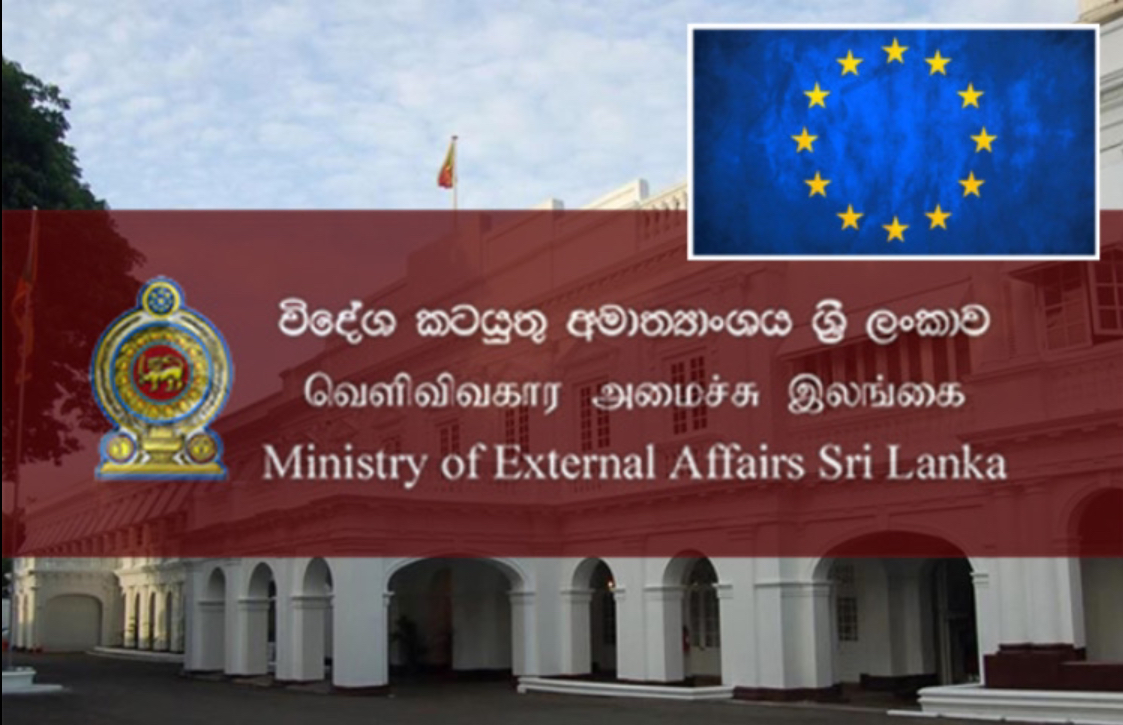Sri Lanka’s Foreign Secretary Professor Jayanath Colombage said the government will continue the program the European Union had indicated.
He was responding to a query from Counterpoint about the practical measures the government of Sri Lanka will take following the Resolution which was passed in the European Parliament last week. The Resolution highlighted in particular the Prevention of Terrorism Act (PTA) and the arrests made under it.
‘Because of Covid-19, progress with what we planned to do has been slow,’ said Professor Colombage.
Commenting on the PTA in its statement issued after the Resolution, the Ministry of Foreign Affairs said its provisions were invoked to address heinous acts of terrorism committed on the people of Sri Lanka. It specifically recalled the Easter Sunday attacks.
‘The government is in the process of revisiting provisions of the PTA in keeping with its commitments and this has been communicated to the EU. It is studying existing legislation to propose necessary amendments and will draw on international best practices adopted by other jurisdictions. The government rejects the claim that the PTA has been systematically used for arbitrary arrests and the detention of Muslim or other minority groups in Sri Lanka’, the statement said.
Meanwhile the Commissioner for Equality in the European Commission Helena Dalli told the European Parliament during the debate on the Resolution that Sri Lankan authorities confirmed their intent to revisit the provisions of the PTA to make the appropriate amendments.
‘The law is not in line with the conventions that Sri Lanka has to implement under the GSP+. Amending the PTA to bring it in line with international standards was a key commitment of Sri Lanka in the run-up to its readmission to the GSP+ in 2017’.
Ms. Dalli who was speaking on behalf of the EU’s High Representative for Foreign Affairs and Security Policy and Vice President Josep Borrell, told the EU Parliament that on 9 March the scope of the PTA was broadened to allow for two years of detention without trial for those suspected of causing religious, racial or communal disharmony. ‘The issue will remain at the heart of our engagement with Sri Lanka in the framework of the GSP+ monitoring’.
The speech, which thematically was exclusively on the PTA, noted that security forces continue to apply it, depriving detainees of due process rights, authorises executive sanctioned detention without charge, and facilitates the use of torture.
The EU Parliament adopted a Resolution on Sri Lanka on 10th June after it was passed with 628 members voting for the Resolution, 15 against and 40 abstentions. Observers see it as a reflection of the EU’s growing concerns about the Sri Lanka’s deteriorating human rights situation.
Among others the Resolution noted the detention of Hejaz Hizbullah, Ahnaf Jazeem and Shani Abeysekara, former Director of the Criminal Investigation Department, and urged the government to give those detained a fair trial on valid charges and to release them unconditionally if not. Six days after the Resolution, the Sri Lankan Court of Appeal gave an order for bail for Abeysekara, who was in detention for nearly one year.
The Resolution called on the European Commission to use the GSP+ as a leverage to advance human rights obligations and to demand the repeal or replacement of the PTA. It also said a careful assessment should be made to initiate a procedure to withdraw the GSP+ status and the benefits that come with it as a last resort.
The EU is Sri Lanka’s second largest export market. The Resolution noted how the GSP+ had contributed significantly to the country’s economy with exports to the EU increased to 2. 3 billion Euros.
Th third review cycle of the EU GSP+ plus monitoring process for 2020-2021 is currently ongoing and is expected to be up for review later in November.
A senior Opposition legislator said the government is concerned about a potential withdrawal of the GSP+ facility which gives Sri Lankan products access to EU markets with preferential tariff rates. Sri Lanka’s top three exports are apparel, clothing and rubber items.(SW)





